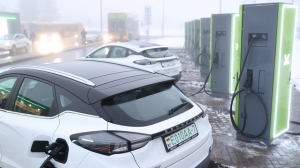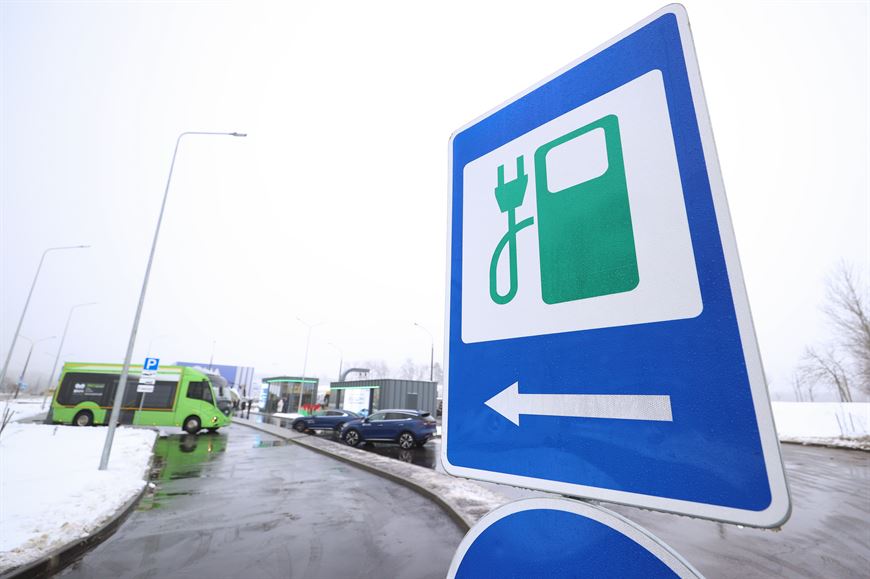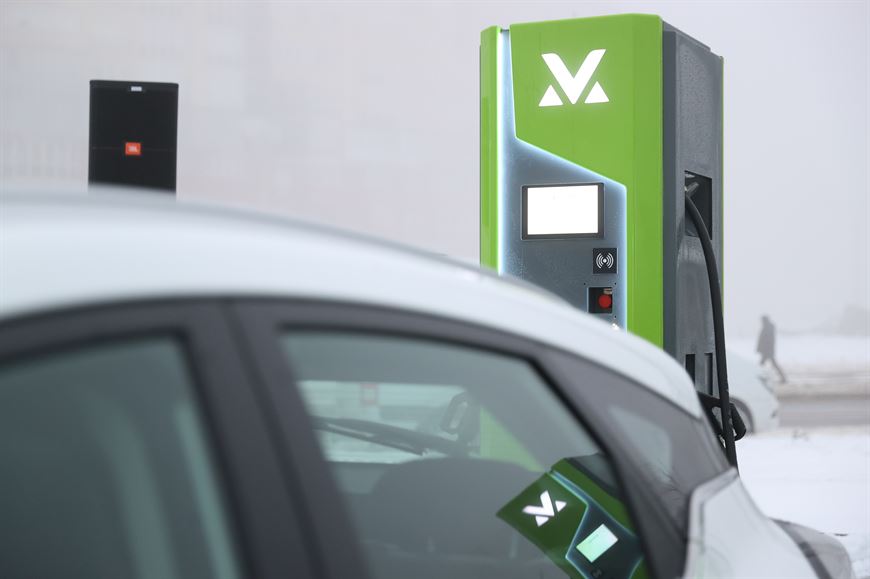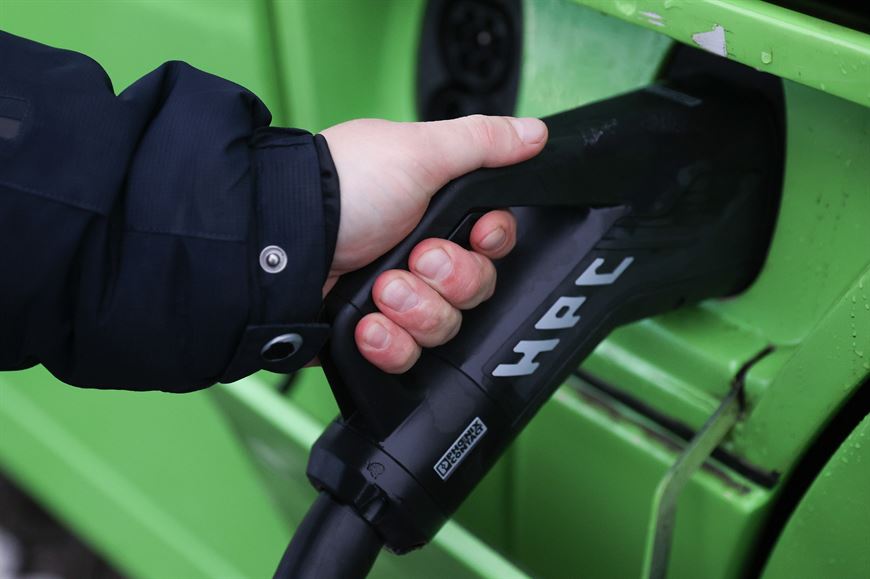Belorusneft explains advantages of newly unveiled EV supercharging complex in Minsk

MINSK, 27 December (BelTA) – A superfast electric vehicle charging complex was inaugurated in Minsk. Andrei Kotik, Deputy Director General of the Belarusian industrial group Belorusneft, which is in charge of setting up and operating EV charging stations in Belarus, talked about advantages of the new facility, BelTA has learned.
Andrei Kotik is convinced that superfast charging stations represent the future of the EV charging infrastructure. “Electric vehicles have to be refueled as fast as conventional cars. This facility boasts a charging station with the output capacity of 350kW. Within 10 minutes it can charge an electric car enough for driving 300km. Moreover, the facility uses dynamic distribution of power between charging units. In other words, the system's optimal output is distributed depending on the number of electric cars,” the executive noted.


The superfast electric vehicle charging complex is located in Napoleona Ordy Street. It has a self-service shop, too. “A computer program offers all the functionality we traditionally see in shops. This level of development of electric transport and charging infrastructure advances Belarus to the level of regional leaders,” Andrei Kotik stated.


The superfast electric vehicle charging complex comprises eight charging units, including seven 100kW ones and a 350kW one. It is a unique project in the territory of the Commonwealth of Independent States. Various foreign companies and countries of the Eurasian Economic Union are interested in the technologies Belorusneft uses. The decision to scale up the project onto the entire territory of Belarus has already been made. As many as 87 superfast electric vehicle charging complexes will be built by 2030 within the framework of the program on setting up a state-run charging network. Some of the complexes will accommodate more vehicles. They will be located in cities and along motorways. They will be able to charge electrobuses and electric cars, Andrei Kotik said.
Belorusneft also intends to build up the capacity to provide consumers with charging infrastructure services.













